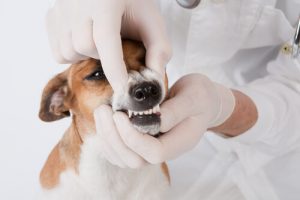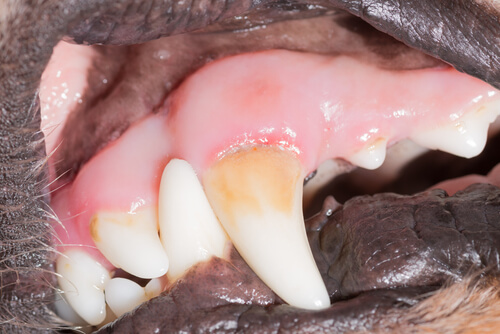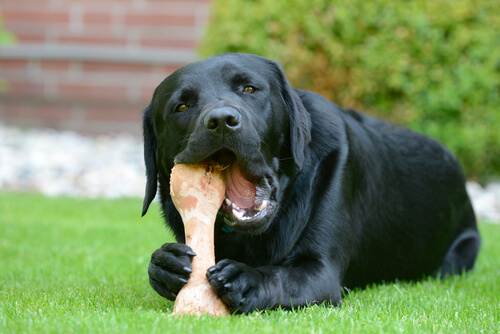Floss Toys for Dogs


Written and verified by the lawyer Francisco María García
Oral hygiene is often talked about as an essential part of taking care of pets. Although daily brushing is recommended, it can be difficult to do on some dogs. To make it easier, there are toys and treats that act as a kind of dental floss for dogs.
Below, you can find out about the importance of oral hygiene for your dog’s health. Also, you can look at some toys and bones that help fight against tartar and periodontal diseases.
The risks of poor oral hygiene
When you don’t provide your dog with good oral hygiene, food traces build up on his teeth and gums. These traces or particles are a food source for the bacteria that were already in your dog’s mouth.
When there are good amounts of food build-ups in your dog’s mouth, these microorganisms begin to rapidly reproduce and form bacterial plaques.
When these plaques come in contact with saliva, it causes a reaction between minerals, bacteria and tooth enamel. This results into tartar building up, which strongly sticks to teeth. This causes the bacteria to continue to reproduce and expand below the gums.
When the bacteria finds its way under the teeth, your dog can experience gingivitis or inflammation of the gums. If this conditions isn’t treated quickly, the bacteria can affect the tissues and bone mass, which causes periodontal diseases. This pathology is comprised of several progressive infectious processes.

Advice for proper dog oral hygiene
To prevent scaling and dental problems in your pet, it’s essential to clean your dog’s teeth and gums on a regular basis. The traditional and highly recommended method consists of brushing by using certain veterinary products.
In pet stores, you can find special brushes and toothpaste for dogs and cats. It’s also important to remember that you shouldn’t use human dental hygiene products on pets. A large number of chemicals in these products can damage the structure of your dog’s teeth and harm his health.
However, there are easier methods to keep your dog’s oral hygiene healthy. There are spray toothpastes, mouth rinses for dogs and some “dental food.” The latter can only be used for adult dogs.
Below, you can look at the bones and toys that will help with your dog’s oral hygiene.
Teeth cleaning bones
Dog bones are a classic, but not everyone knows about the benefits they have on oral hygiene. However, as a responsible pet owner, you have to take some preventative measures before giving bones to your dog.
First, you should only give them raw bones, not cooked ones. Cooked bones can splinter and damage your dog’s digestive tract. Also, these bones may cause inflammation in your dog’s esophagus, which is a complex condition. It’s best to choose easily digestible bones, like those from rabbits or pigs.

You can also give your dog pressed bones that are made from leather and are 100% edible. It’s important to watch how many bones you give, three bones per week are a healthy amount. Excessive digestion of bones and leather can hurt your dog’s digestive system.
“Floss” toys for dogs
You can find a good amount of dental dog toys at the pet store. They come in all shapes: plastic bones, balls, cubes, and even stylish geometric figures.
These accessories are specially designed to help your dog’s oral hygiene. They help to prevent the build-up of food residue between his teeth and gums. They are good for your pet and they’re also great for entertainment and mental stimulation.
Another great option is a toy that dispenses treats. These have the same principle as the Kong, which is a safe and reliable toy that was designed to stimulate your dog’s intelligence.
Also, these devices are great for preventing separation anxiety and improving eating habits (mainly for dogs that eat too quickly).
It’s always best to consult a trusted veterinarian to check the oral health of your pet and to verify which method will best suit his needs.
This text is provided for informational purposes only and does not replace consultation with a professional. If in doubt, consult your specialist.